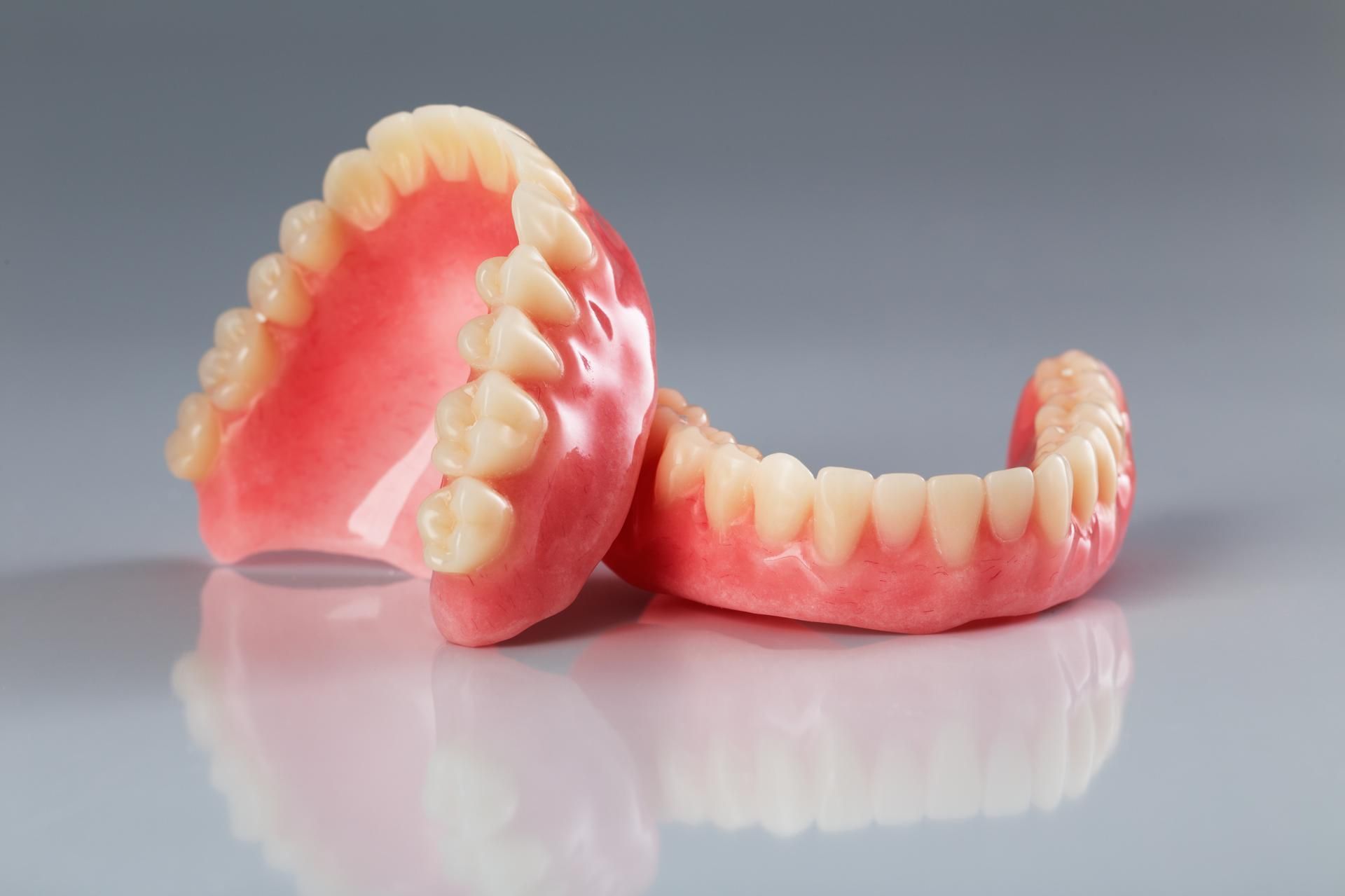Partial Dentures vs. Full Dentures: A Complete Guide

For many, the decision to get dentures marks a new chapter in life, one that holds the promise of restored confidence and improved quality of life. Yet, navigating the world of dentures can seem daunting, especially when faced with the choice between partial and full dentures. There isn't a one-size-fits-all answer, but understanding the differences and benefits of each can help you make an informed decision. This blog offers a comprehensive guide to help you choose the type that's best for you.
Understanding Partial Dentures
What Are Partial Dentures?
Partial dentures, referred to as dental bridges, are dental fixtures designed to bridge the gaps resulting from one or more missing teeth. These are attached to the natural teeth via metal or plastic clasps, providing a secure and comfortable fit.
The Benefits of Partial Dentures
A Natural Look and Feel
Partial dentures are customized to match the color and shape of your natural teeth, providing a seamless appearance and a comfortable fit.
Support for Adjacent Teeth
One of the key benefits of partial dentures is their ability to prevent your existing natural teeth from shifting, which can lead to jaw misalignment and other oral health issues.
Delving into Full Dentures
What Are Full Dentures?
Full dentures, often referred to as complete dentures, are dental appliances that replace all of the teeth in either the upper or lower arch of the mouth. They are fabricated from a durable, natural-looking material and are custom-fitted to the patient.
The Benefits of Full Dentures
Comprehensive Tooth Replacement Solution
Full dentures offer a complete solution for those with multiple or all teeth missing, restoring the ability to eat, speak, and smile with confidence.
Improved Facial Structure and Speech
They can also improve the structural integrity of your face, helping to fill out the appearance of your cheeks and lips, and they aid in speech, making it easier to pronounce words and aiding in clear communication.
Deciding What’s Right for You
Factors to Consider When Choosing Dentures
Your Dental Condition
The extent of your tooth loss and the condition of your remaining teeth will be the primary factors in determining whether partial or full dentures are best for you.
Comfort and Fit
Your dentist will take measurements and impressions of your mouth to ensure your dentures fit properly. The size, shape, and material of your restoration will contribute to how well it integrates with your natural oral anatomy.
Long-Term Maintenance
Understanding the maintenance requirements of each type is essential. Both partial and full dentures require regular cleaning and care to prevent staining and maintain oral health.
The Decision Process
Consult with a Professional
The first step in choosing the right dentures is consulting with a dental professional. They can assess your oral health, discuss your needs and concerns, and recommend the best treatment plan for you.
The Importance of a Proper Fit
Regardless of the type, the importance of a proper fit cannot be overstated. Ill-fitting dentures can cause discomfort, affect your ability to eat and speak, and lead to oral sores.
Cost Considerations
Cost is often a significant consideration. Depending on your dental insurance, the type of denture you choose could impact your out-of-pocket expenses.
Final Thoughts on Denture Decision-Making
Deciding between partial and full dentures is not one to take lightly. It's a choice that will affect your oral health and well-being for years to come. Remember to consider your oral health, comfort, and the long-term implications of your decision. And most importantly, rely on the expertise of your dental professional to guide you through the process.
Whether you opt for partial or full dentures, understand that your new smile is not just a cosmetic change. It's a significant step toward better oral health and a more fulfilling life. By making an informed decision, you're ensuring that your dentures will serve you well, day in and day out. Don't hesitate to contact a dental professional here at Rabel Family General Dentistry to move toward a brighter, healthier smile.
CONTACT INFORMATION
3114 Groom Road Baker, LA 70714
Phone:
225-775-0160
Email:
drbrett@lakeshorecapital.biz
PAYMENT OPTIONS






CareCredit
BUSINESS HOURS
- Mon - Fri
- -
- Saturday
- -
- Sunday
- Closed
*Our phones are monitored 24/7
Interest-Free Payment Plans
We partner with a third party ad network to either display advertising on our Web site or to manage our advertising on other sites. Our ad network partner uses cookies and Web beacons to collect non-personally identifiable information about your activities on this and other Web sites to provide you targeted advertising based upon your interests. If you wish to not have this information used for the purpose of serving you targeted ads, you may opt-out by clicking here . Please note this does not opt you out of being served advertising. You will continue to receive generic ads.
